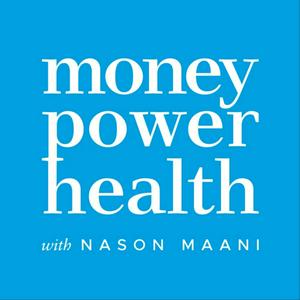Episode 13: Industry-funded school education programmes with May van Schalkwyk
Hi everyone and welcome back to Money Power Health. We often tend to think of our health as the product of our own energies, something we alone are accountable for. But in reality, our health is to a large degree shaped by the conditions we find ourselves in, the quality of our air, the wealth of our parents, the food we have access to, our opportunities for work, our time for exercise. Schools and education are a key part of this. Schools shape how we see the world and interact with each other at a critical stage in development. Most people might assume that schools are a place in which commercial influence is largely absent. That however is far from the case. Children are a key market, and brand loyalties formed in childhood can persist into adulthood, and standards of behaviour, of consumption, taste, and definitions of coolness, risk, fun are all being formed during this time. In part due to this, there is now a long history of the manufacturers of unhealthy products funding the development of lesson plans, initiatives and activities in primary and high schools that involve issues like fossil fuels, firearms, alcohol, gambling or smoking. This has significant strategic value, and in order to understand more about why this happens, and what it means for children and young people, I am very pleased to be joined by someone who has led on several studies examining the nature and purpose of such funded materials in schools. May van Schalkwyk is a research fellow in commercial determinant of health in the Global Health Policy Unit and Centre for Pesticide Suicide Prevention at the University of Edinburgh. She also has an honorary public health consultant role with Public Health Scotland and is an honorary research fellow at the London School of Hygiene and Tropical Medicine where she completed her PhD in 2023 and is a member of the commercial determinants research group. May originally trained as a clinical doctor and then specialised in public health medicine. Her research aims to explain how commercial actors influence ideas, knowledge, science and policymaking. She publishes research on the tobacco, alcohol, gambling, fossil fuels, opioid, pesticide and firearm industries, including on the influence of youth education and safety programmes as a form of corporate political activity. Full disclosure: May and I are good friends and go back some time, having met at the London School of Hygiene and Tropical Medicine, and worked together for over seven years researching the commercial determinants of health, including some of the articles we will be discussing. You can find out more about the topics we have discussed, including some of May's recent research articles, in the links below: Alcohol industry funded school programmes: https://journals.plos.org/plosone/article?id=10.1371/journal.pone.0259560https://www.thelancet.com/journals/lanpub/article/PIIS2468-2667(22)00341-3/fulltextGambling industry funded school programmes: https://academic.oup.com/heapro/article/39/1/daad196/7565070https://www.sciencedirect.com/science/article/pii/S235282732200101XLink to public-facing videos May has made about research on the commercial determinants of health: https://www.youtube.com/channel/UCfnKnt8BHlSgTIdK7jfGwfg
